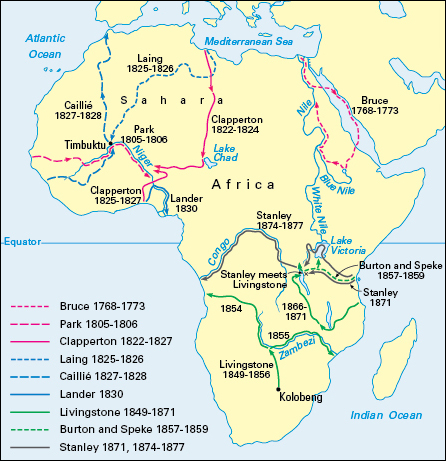Park, Mungo (1771-1806), was a Scottish explorer who led one of the first Western expeditions to investigate the course of the Niger River in western Africa. His explorations were part of a European effort to map Africa and develop its commercial potential.
Park was born on Sept. 10, 1771, near Selkirk, Scotland. He became a surgeon and served as a ship’s doctor in the East Indies, but he also developed an interest in botany. This interest brought him to the attention of the African Association, a British organization that promoted the exploration of Africa. In 1795, the association sent Park to explore the Niger River.

Park first journeyed eastward on the Gambia River. He then traveled with African companions overland, where the group found an extensive trade in salt, gold, and slaves. Many local rulers and merchants viewed him as a competitor for trade and tried to block his passage. Park reached the Niger near present-day Segou, Mali, in June 1796. He followed the river a short way and saw that it flowed eastward, not westward as Europeans had thought. Park returned to Britain in 1797. He presented the story of his journey in Travels in the Interior of Africa (1799), a best-selling book.
In 1805, Park led a British government expedition to trace the course of the Niger River. Most of the expedition died of disease, but the survivors reached the Niger in early 1806. Park sent his guide back to the coast with his journals before heading downstream, never to be heard from again. Reports later reached the coast that Park and his party had drowned in the Bussa rapids, now part of Kainji Lake in Nigeria, while trying to escape the forces of a local ruler.
See also Niger River .
